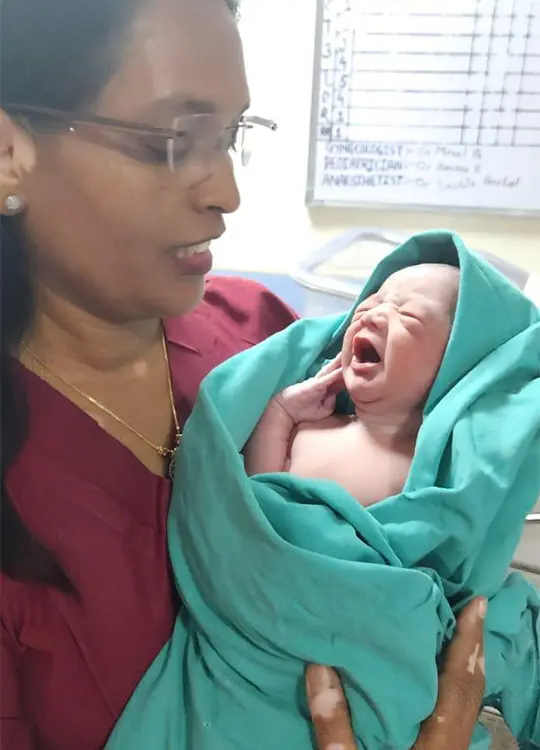Facing Recurrent Miscarriage? Find Answers & Hope With Us
Planning a family is an adventure full of joy and hope. However for women this path can be overshadowed by the sadness of repeated miscarriages. If you have faced miscarriages in Pune remember that you are not alone. This article seeks to offer you details to understand insights, on recurrent miscarriage the treatment choices accessible in Pune and sources to guide you through this tough situation.
What is Recurrent Miscarriage and How common it is?

What are the symptoms of Recurrent Miscarriage?
The signs and symptoms of recurrent miscarriage are similar to those of a typical miscarriage:
- Bleeding, ranging from light spotting to heavy flow.
- Abdominal cramps or discomfort.
- Expulsion of tissue through the vagina.
- Abrupt reduction, in pregnancy symptoms such as nausea and breast sensitivity.
What Causes Recurrent Miscarriage?
If you have faced miscarriages, We prefer to conduct an assessment to determine the root cause. This may entail looking into aspects such, as:
Genetic Concerns: At times abnormalities in the embryos chromosomes can result in miscarriages.
Uterine Abnormalities: Structural issues in the uterus like fibroids or a septum might impede a pregnancy.
Hormonal Imbalances: Conditions such as ovary syndrome (PCOS) or thyroid irregularities could be contributing factors to miscarriages.
Immune System Challenges: An overly active immune system might erroneously target and attack the embryo.
Infections: Certain infections have been linked to an increased risk of miscarriage.
Lifestyle Elements: Factors, like smoking, excessive drinking and obesity may also impact pregnancy outcomes.



The ICSI Process

The Diagnosis and Treatment of Recurrent Pregnancy Loss
Receiving a diagnosis of pregnancy loss usually occurs when a woman has gone through 2 or more abortions. It is advisable, for an assessment to be conducted following multiple pregnancy losses to pinpoint the root cause. The assessment typically involves:
Genetic Testing: Both partners may undergo testing to identify any abnormalities.
Ultrasound and Hysteroscopy: These imaging methods help in detecting any uterine anomalies.
Hormonal Tests: Blood tests are carried out to assess hormone levels.
Immune System Testing: Screening is done to detect any autoimmune issues.
Despite an evaluation the cause remains unknown in 50% of cases of recurrent pregnancy loss. Continuous monitoring and support play a role.
Treatment Options:
There isn’t a one size fits all solution as the treatment for recurrent pregnancy loss (RPL) varies based on the underlying cause. Nonetheless some common treatments include;
Hormonal Problem Correction: This might involve using medications like progesterone or thyroid hormone.
Surgical treatment of uterine abnormalities or fibroids: In certain situations surgery may be required to rectify physical issues in the uterus affecting pregnancy.
Immunologic treatments: Treatment options for pregnancy loss include treatments like corticosteroids or IVIG for autoimmune disorders.
Blood thinning medications: If a blood clotting disorder is identified, medications such as low-dose aspirin or heparin may be prescribed to help prevent miscarriage.
Preimplantation genetic diagnosis (PGD) : it’s a fertility procedure that helps select embryos for implantation for couples with genetic causes of recurrent pregnancy loss.
Making lifestyle changes: Maintaining a healthy weight, eating well, avoiding smoking and alcohol and managing stress can also improve health and reduce the risk of miscarriage.
It’s essential to consult a doctor if you are facing repeated pregnancy loss to identify the root cause and explore treatment methods.

Frequently Asked Questions
Can repeated miscarriages be prevented?
What role does stress play in repeated miscarriages?
How effective is IVF in treating repeated miscarriages?
What are the chances of having a successful pregnancy after repeated miscarriages?
Take The Next Step:

Take The Next Step:
Here at Conceive IVF, we understand recurrent miscarriage can be challenging, but with the right information, support, and medical care you may improve chances of conception. We do understand the emotional journey of infertility, and our experienced team is here to support you every step of the way. Schedule an appointment with Conceive IVF today or call 9595860860 to discuss your endometriosis concerns and explore your fertility options. We’re here to help you achieve your dream of parenthood.


